Labor goes full steam ahead on track for political fiasco
Anthony Albanese recycles disastrous voice tactics, this time risking an even greater failure over renewable energy.
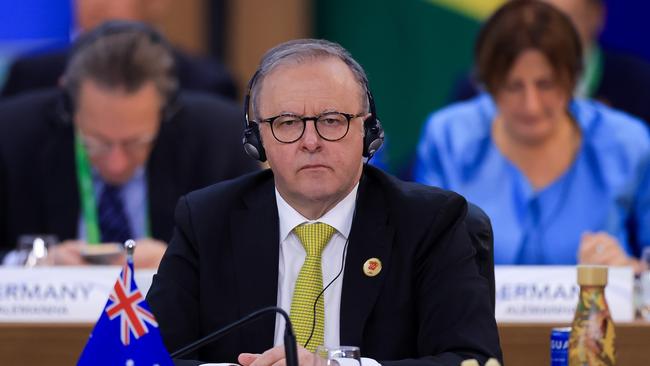
Labor is consumed with a take-it-or-leave-it belief in the implementation of a renewables-only energy policy as the underpinning of a caring and inclusive economy and the creation of Australia as a global renewables superpower.
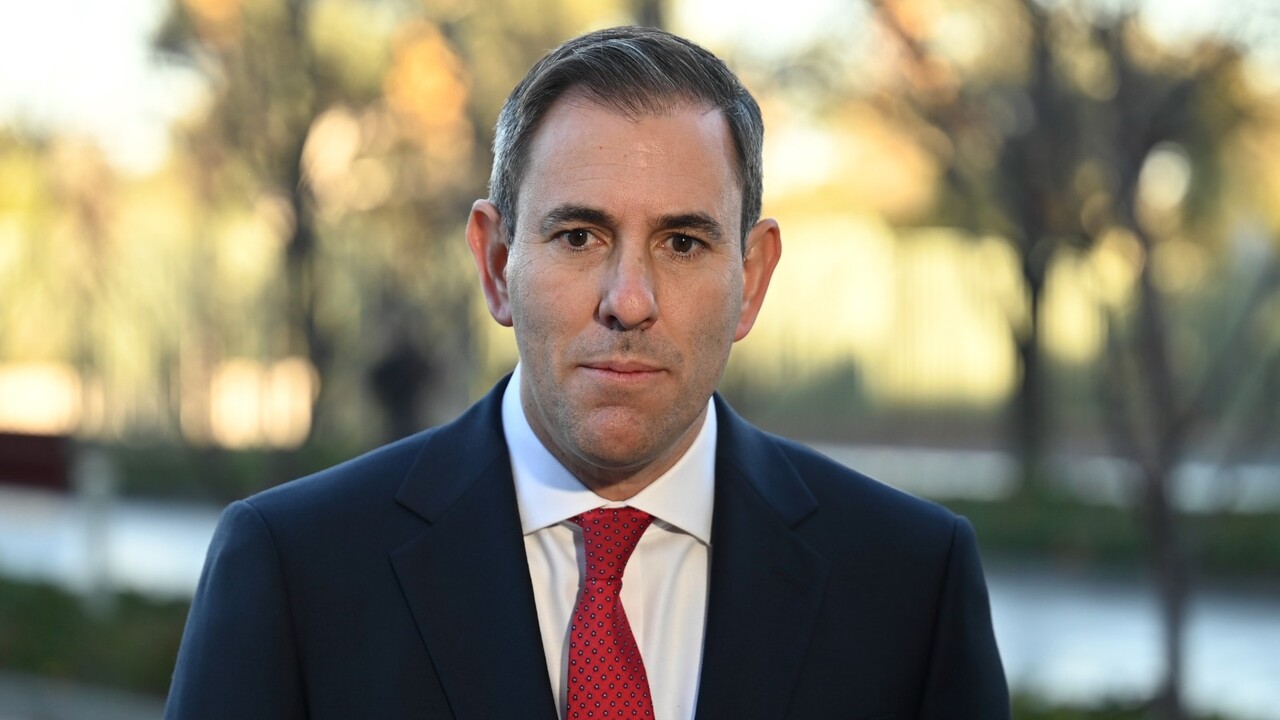
As was the case with the voice referendum, the Labor government is absorbed with what it believes to be a central truth, an indisputable outcome and an economic solution to the various cost crises facing Australians. It is dismissive and antagonistic towards opponents and supported by an elite of rich corporations, financiers, academics and interest groups.
And, as in the referendum debate, Labor is refusing to provide pertinent detail on potential impacts or offer any sign of compromise or consideration of alternatives. Again, the government is proving deaf to significant and justifiable doubts from business, industry and voters over genuine concerns at a time of global change and anxiety.
There is a real danger, and growing evidence, that the government is turning the issues of renewable energy and nuclear power from being what it believed would be negatives for Peter Dutton into positives for the Coalition.
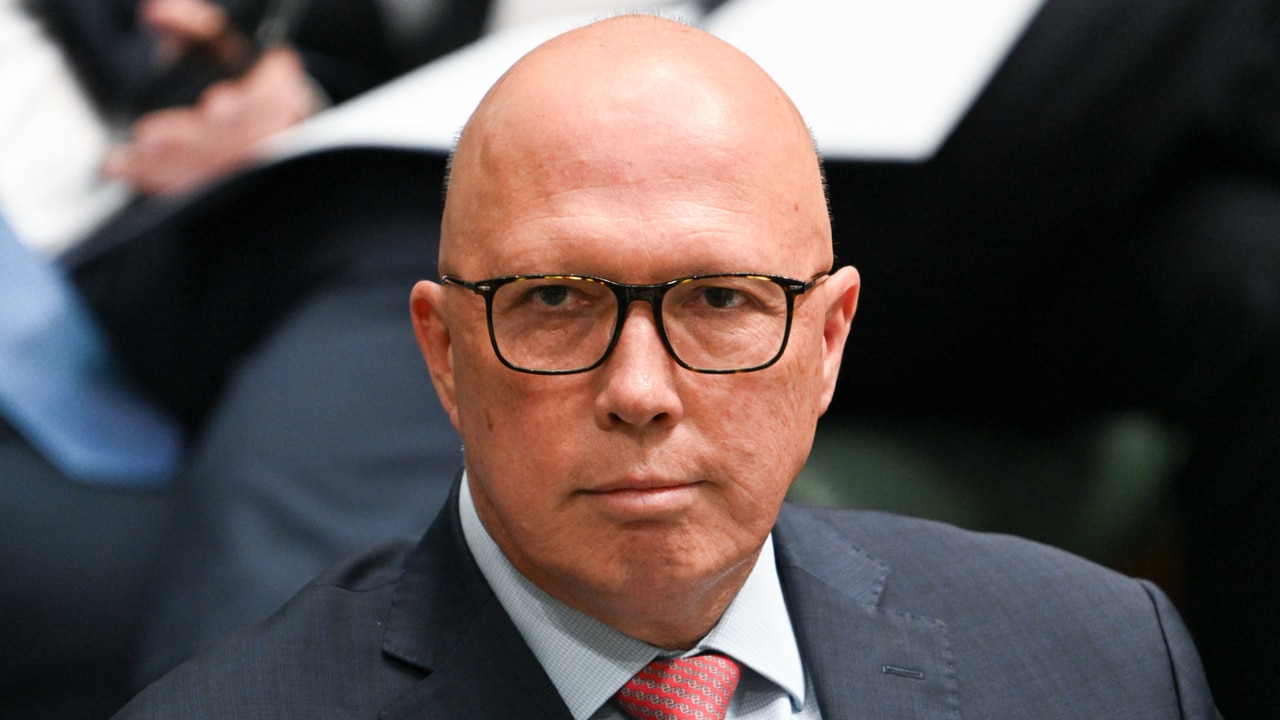
It was another political week where the focus shifted from Labor’s declared priority of easing the pressure of rising costs and economic management, to climate-change obsession and stubborn refusal even to discuss the shifting balance within global attempts to cut carbon emissions.
Just this week, the penultimate parliamentary sitting week before the election next year, Anthony Albanese told Asia-Pacific Economic Co-operation forum leaders in Lima he wanted Australia to become a renewables superpower. In Baku, meanwhile, Climate Change and Energy Minister Chris Bowen rejected a joint US-British invitation to sign an agreement to speed up global nuclear energy to cut carbon emissions; and in Canberra Jim Chalmers sought to “improve” Australia’s first and only sovereign wealth fund by inserting priorities for investment in renewable energy.
All these declarations and decisions were premeditated, built on core convictions, totally without compromise, defended with debatable – if not questionable – logic, accompanied by dismissive derision and relying on presumed popular support.
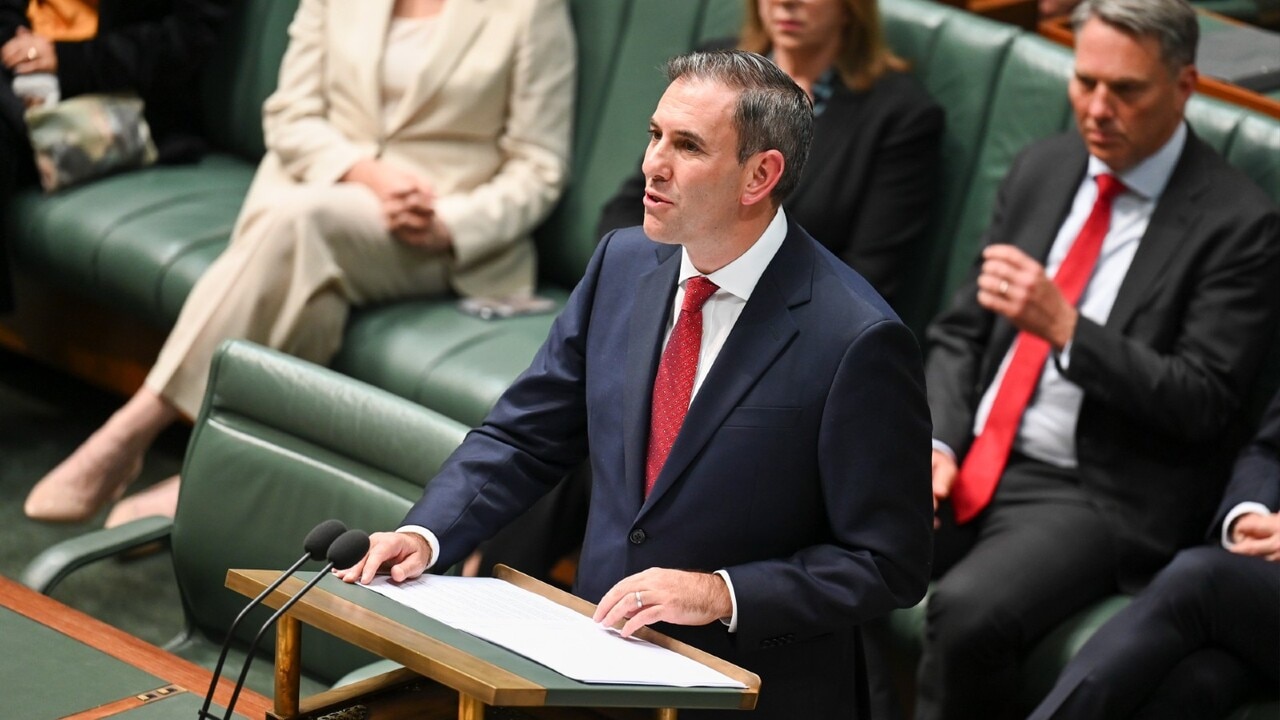
These ideas are being introduced as a re-election strategy during the final months of the government’s first term, in the face of the failure of the first economic attempts to address the public’s priority concern of cost-of-living pressures. Despite all the Treasurer’s promises, there is still persistent inflation, high costs, including energy, and the likelihood of no interest rate cuts before May next year.
Again, as with the voice proposal, this redoubled effort on renewable energy is supported by every Labor minister, MP and senator without question or query. There is an acceptance of the dangerous political premise that Dutton is unelectable, that the vocal support for renewable energy from leading public figures represents a popular public view and that unsupported claims or broken promises about energy costs will be forgiven.
The danger for the Prime Minister is that support from the “institutional elite”, as former Labor minister Joel Fitzgibbon called them, for the new caring and inclusive economic solution will further delude Labor.
What’s more, since the shock from the referendum loss late last year, Albanese has had time to regain his confidence, pick up momentum and announce huge tax cuts, but this potential check comes as Labor has fallen behind in the polls, the Opposition Leader is closing on Albanese as preferred prime minister, the Coalition has 40 per cent primary vote and the Treasurer has pledged there will be no big-spending budget freebies.
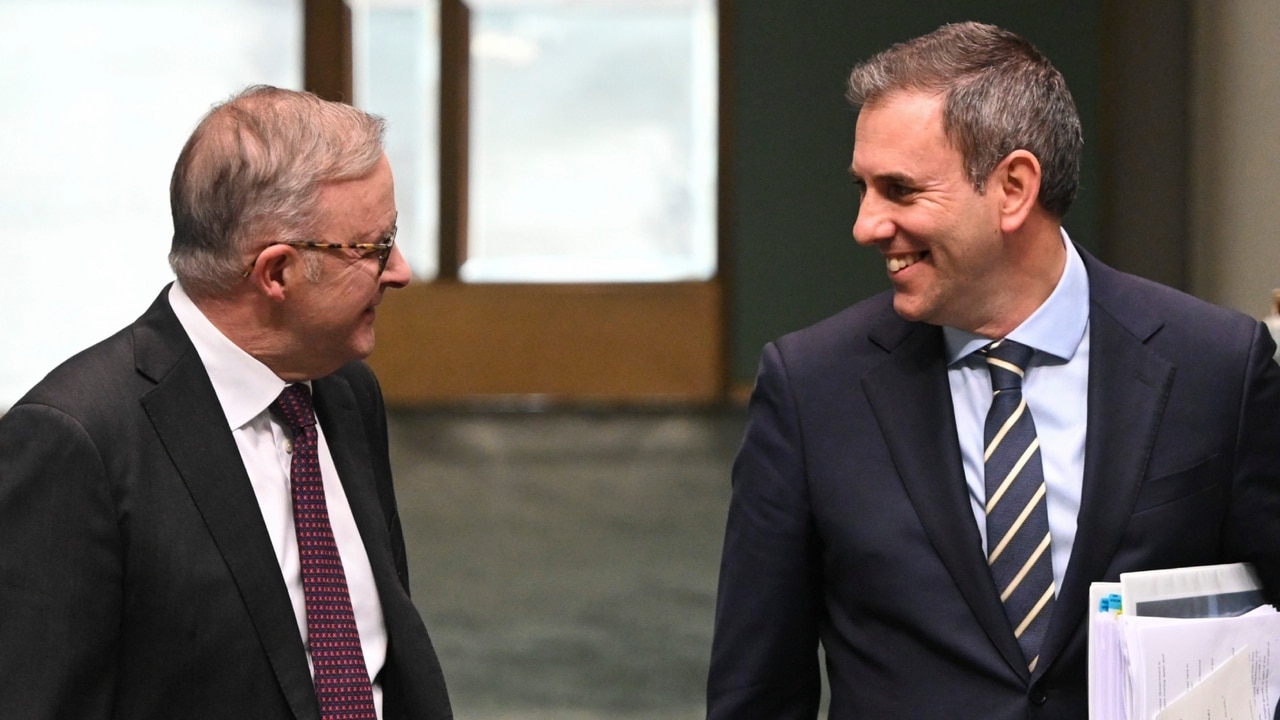
The context on cost of living, renewable energy, nuclear power and Labor support has shifted, but the central commitment to a transition to a renewable energy economy at whatever cost has not.
Speaking to APEC leaders in Peru, Albanese said: “The global move to net zero represents the biggest economic shift since the industrial revolution.
“Just as all of us have a role to play in cutting emissions and meeting the challenge of climate change, all our citizens can benefit from seizing the opportunities of clean energy.
“It’s also an unprecedented chance for our economies to build new sources of inclusive growth and lasting prosperity. My government’s ambition is for Australia to become a renewable energy superpower,” he said, with the prospect of a shake-up in global action on climate change under a re-elected Donald Trump in the US.
Yet while Albanese was sharing kind words and a handshake with President Joe Biden, Bowen was rejecting a US-British invitation to sign a new agreement to speed up the spread of civil nuclear energy to cut carbon emissions and provide secure power.
In Azerbaijan at the COP29 climate summit Bowen flatly rejected the approach of his British Labour counterpart, Energy Security and Net Zero Secretary Ed Miliband, to join the information-sharing agreement on nuclear that Miliband had officially announced he expected Australia to join.
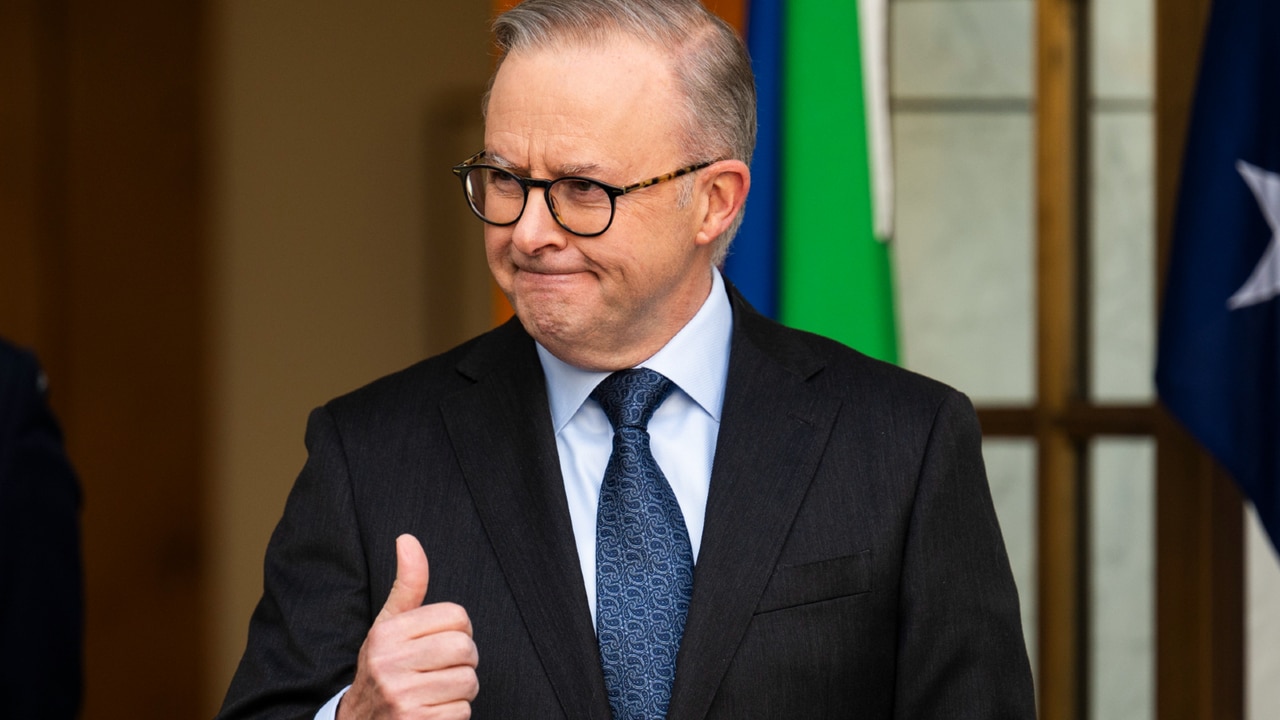
As part of a complete change on energy policy, Miliband said Britain was “reversing a legacy of no nuclear being delivered and moving forward with its advanced nuclear reactor program and Great British Nuclear’s small modular reactor competition”.
“Nuclear will play a vital role in our clean energy future,” he said. “That is why we are working closely with our allies to unleash the potential of cutting-edge nuclear technology. Advanced nuclear technology will help decarbonise industry by providing low-carbon heat and power, supporting new jobs and investment.”
This is typical of a global reassessment of nuclear, renewables and cutting carbon emissions, and fits effortlessly into the Coalition’s still uncosted nuclear-power policy designed to firm electricity supply for renewables as coal is retired.
Bowen rejected the grounds for the British revision and Australia joining its AUKUS nuclear-submarine allies on the basis that Australia’s position was different to that of Britain because even Melbourne had more sunshine hours than London and therefore nuclear was not viable for Australia.
Dutton responded: “It’s clear to every Australian now that the Albanese government is a disaster here in Australia and they’re now an embarrassment overseas as well. We’ve got Chris Bowen, who is at COP29, and frankly, is an embarrassment for our country.
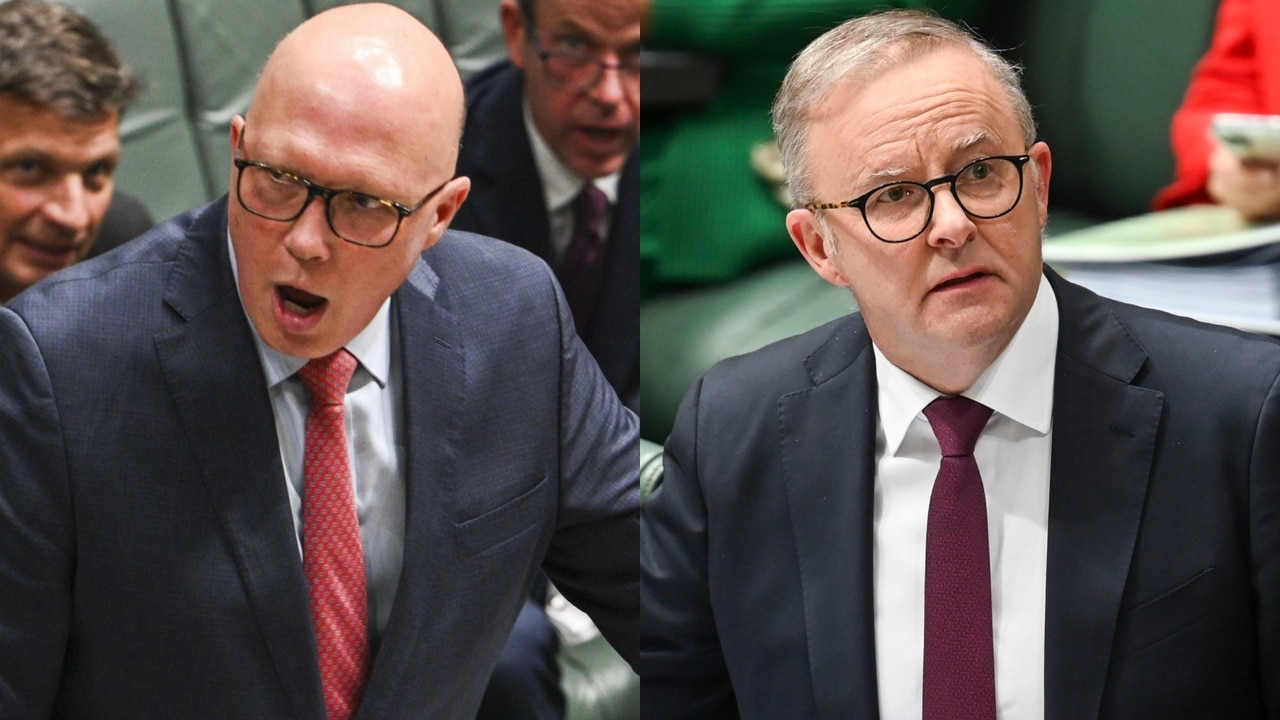
“We know that the US and the UK expected Australia to sign up to the nuclear agreement. We know that at COP28 there were 31 countries who signed up to a tripling of energy.” Despite the appearance of a tongue-in-cheek response, Bowen’s argument, contradicted by sun-swathed Middle Eastern nations developing nuclear reactors and made risible by the relative size of Australia and Britain, was adopted immediately in Canberra, with Acting Prime Minister Richard Marles telling parliament the government would not be signing the nuclear power push.
In response to Dutton’s question as to why the government was not joining Britain, the US and more than 30 other nations in trying to accelerate the spread of civil nuclear power, Marles was blunt: “It’s because we don’t have a civil nuclear energy industry in this country, nor do we seek to establish one. The reason we don’t seek to establish one is that to do so would be to pursue the single most expensive form of electricity in the world today.”
Then Chalmers dropped his own renewable surprise announcing that Australia’s first and only sovereign wealth fund, the $230bn Future Fund, would have its investment priorities changed so that Labor’s pet projects – renewable energy, housing and infrastructure – had to be considered for investment. The highly successful and strongly performing investment fund – which covers unfunded public service superannuation and contributes to the budget bottom line – had never been directed before and it was clear Chalmers wanted renewable energy investments included.
Again, in the wake of global post-pandemic anxiety and Chalmers’ own warnings about threats to economic stability, how does Labor not think voters will look at a raid on the nation’s nest egg as anything else but a grab for gold to fund pet projects?
Chalmers, in the face of fierce criticism, tried to argue that nothing had really changed and that the new priorities he inserted as Treasurer wouldn’t risk the golden egg.
But Peter Costello, the treasurer-founder of the fund and later its chairman, pierced the obfuscation, declaring that if the changes didn’t do anything, then why introduce them?
“When governments direct savings to particular areas they usually end in political decisions that lose money,” he said on Thursday. Costello said Labor was claiming the new ministerial direction would not change anything, but “you don’t change things to keep them the same”.
Certainly, Chalmers said the changes would “improve” the Future Fund and told parliament the changes were directed “at the major challenges we face as a nation”.
Mixed messages, illogical arguments, puerile references, dismissive insults and a lack of detail are all reminiscent of the failed voice referendum campaign, yet Labor is revisiting this disastrous tactic and risks an even greater failure over renewable energy.


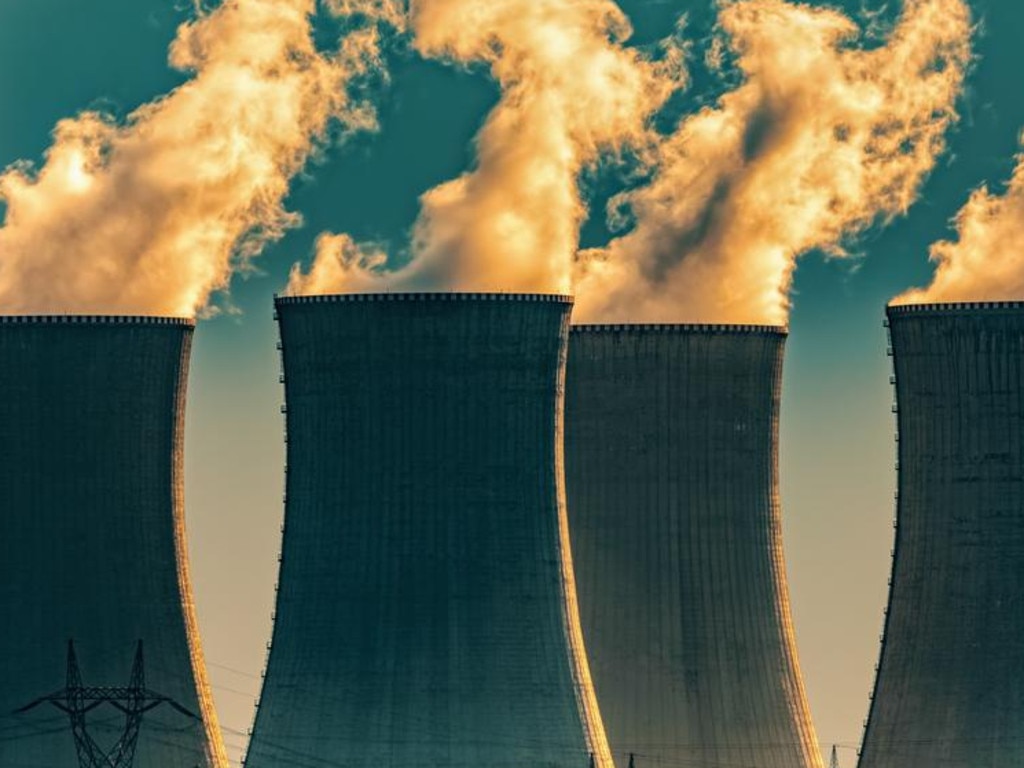





As it did with the Indigenous voice referendum, the Albanese government is drifting towards a catastrophic failure – this time over its blind commitment to an accelerated net-zero carbon emissions economy, which has been central to every major decision being taken within months of an election.